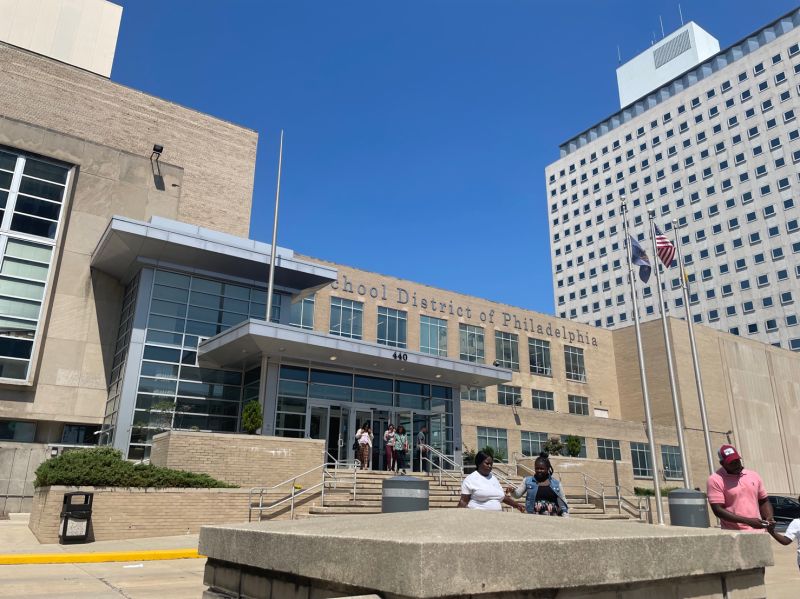A delayed Pennsylvania state budget has put public transit funding in limbo, prompting SEPTA to prepare for major service cuts that could affect thousands of daily commuters—including nearly 55,000 Philadelphia students who rely on buses and trains to get to school. (Credit: SEPTA Facebook)
Pennsylvania’s state budget is now more than three weeks overdue, with no clear timeline for when lawmakers will reach a deal. While it’s not unusual for negotiations to stretch into July, the consequences of this year’s delay could be severe—especially for public transit riders.
Without additional state funding, SEPTA is preparing to implement its so-called “doomsday” budget, which includes a 21.5% fare hike and a 45% reduction in service. The first proposed cut, scheduled for late August, would eliminate 38 bus routes that thousands of city commuters rely on daily.
Among those most affected are the nearly 55,000 students in the Philadelphia region who depend on SEPTA buses and trains to get to and from school.
With cuts set to begin Aug. 24—just a day before school starts—The School District of Philadelphia is urging families to find alternative transportation for their children.
Monique Braxton, the school district’s chief of communications, said ant student who lives a mile and a half from school is provided transportation. The school district has 1000 bus routes, including yellow bus service, SEPTA service and additional services for special needs students.
“We're urging parents, guardians and students to devise a plan of action,” Braxton said. “Safety remains a top priority of the district, and that includes getting children to and from schools.”
Braxton said district leadership—including charter school principals, public school principals and transportation officials—plans to meet with SEPTA next week to discuss possible solutions.
SEPTA isn’t the only transit agency in Pennsylvania that relies on state funding to close its budget gap. Transit agencies across the state have faced deep deficits since the COVID-19 pandemic, and without additional support from Harrisburg, many will be forced to absorb losses through service cuts.
“We operate as a commonwealth, which means we support one another,” Democratic State Senator Maria Collett said. “And that's a big part of the fundamental misunderstanding here. Transit funding is not SEPTA funding; it is transit funding for every public transit system across our state, that really does move a million people around our state every day.”
Alongside SEPTA cuts, the state’s second-largest transit agency, Pittsburgh Regional Transit, serving Allegheny County, has also approved dramatic service cuts that will be forced into effect if state funding doesn’t come through.
Back in February, Democratic Governor Josh Shapiro originally proposed a $51.5 billion budget, amid an oncoming $4.5 billion budget gap, which would include increased funding for healthcare coverage, K-12 education, and public transportation agencies statewide.
On June 14, two weeks after the state budget deadline, the Democratic-controlled House advanced a $50.6 billion proposal to the GOP-led Senate, a $900 million reduction from Shapiro's February proposal. Lawmakers and Gov. Shapiro said they’ve finally made progress in negotiations.
“The job is to keep advocating. It's to keep pressure up. It's to keep, you know, letting our colleagues know just how critical this is,” Collett said.
While this may be a sign of progress and shows lawmakers are willing to move quickly, the impasse still sparks concern for many local governments, nonprofits and other agencies that depend on state funding to stay afloat.
For Pennsylvania’s 500 school districts, the uncertainty can be especially challenging. Aside from transportation concerns, many districts have limited cash reserves, and in some cases, those funds are set aside for long-term projects like building renovations—not day-to-day expenses like payroll and utility bills.  With looming SEPTA cuts, student transportation is now a growing concern for the School District of Philadelphia. However, if state funding remains stalled, schools state-wide will be forced to prepare contingency plans. (Credit: Philly Schools Facebook)
With looming SEPTA cuts, student transportation is now a growing concern for the School District of Philadelphia. However, if state funding remains stalled, schools state-wide will be forced to prepare contingency plans. (Credit: Philly Schools Facebook)
In mid-June, the State House advanced a key part of that plan, passing a bill that would boost transit funding without raising taxes. The measure aims to deliver $1.5 billion to public transportation over five years by reallocating existing sales tax revenue, increasing current allocated funding from 4.4% to 6.15%.
The bill now awaits action in the GOP-controlled Senate, where it remains stalled with no clear timeline for a vote. Democratic state legislators, including Sen. Collett, have continued advocating for the bill.
Collett said that while there’s been ongoing back-and-forth between the legislature and the administration over the state budget, she sees recent signs of progress—specifically around a general appropriations bill that includes provisions to protect minors on social media.
“It's really the first time we've seen something significant in terms of the negotiation for the budget,” she said. “It's a good sign.”
Collett said she’s hopeful lawmakers will reach a budget deal before SEPTA’s cuts take effect, but there are no guarantees. While she said her colleagues would not approve a budget without transit funding, it may not include all components of the house bill.
Collett oversees Montgomery County, where city commuters who ride the Paoli-Thorndale line—the most popular rail line—will be directly affected by cuts. She said something people can fail to understand is that public transit supports the entire economy—not just cities, but rural areas too.
Collett said, as a longtime supporter of transit funding, she has always understood its importance and never needed a reason to support it. She emphasized the ongoing need to remind others just how essential public transit is for communities.
“I wish the threat of service cuts was something that moved my colleagues, who have not been supportive of transit funding from the beginning, but that’s not what I'm seeing, unfortunately. ” Collett said. “Which is why we have to keep the pressure up.”